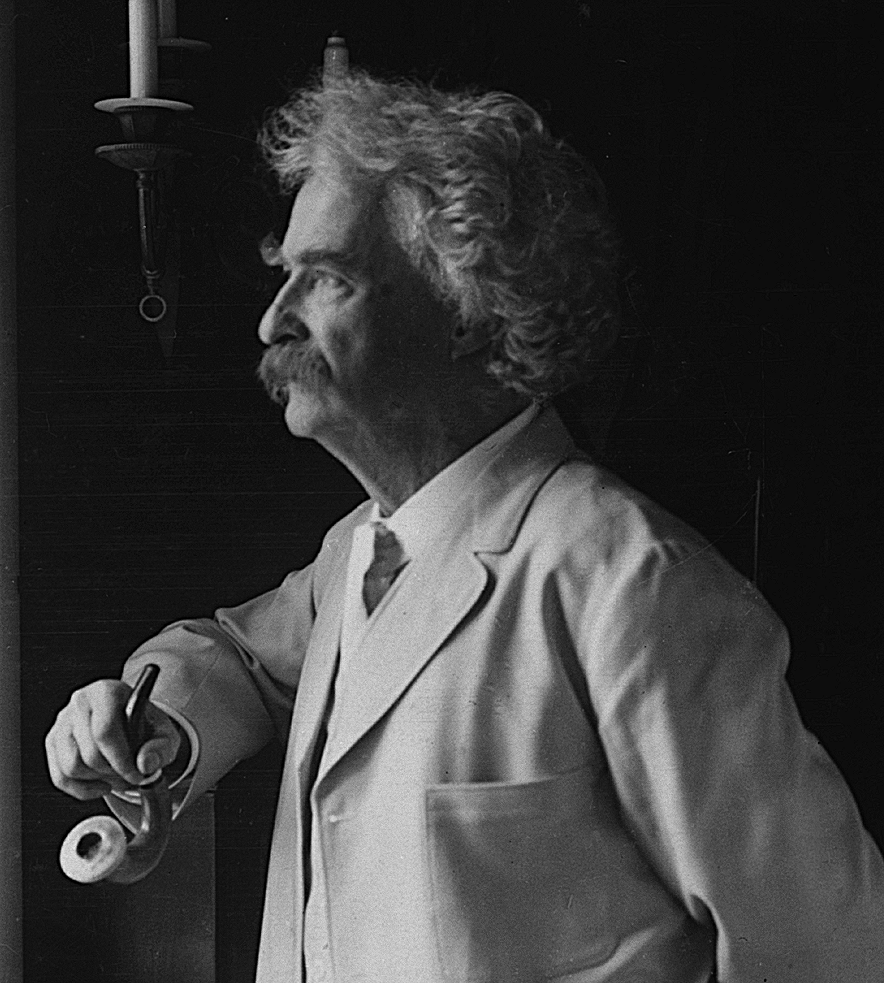On His Birthday, Remembering Mark Twain’s Gifts to The Atlantic
By Brian Resnick
Twain’s relationship with The Atlantic began in December 1869, when William Dean Howells, then an assistant editor, wrote a highly favorable review of Twain’s first book, Innocents Abroad. The book had been published that year by a small commercial publishing house that sold copies by peddling the book from door to door. (Howells later went on to review The Adventures of Tom Sawyer and A Tramp Abroad for the magazine) Twain was so pleased with the review that he stopped by The Atlantic‘s offices to meet Howells in person. The two became good friends, and as Twain’s reputation grew, Howells began soliciting submissions from him.
His pursuit of a story by Twain was unsuccessful until 1874, when Howells, who was by then The Atlantic‘s editor in chief, obtained permission from the magazine’s publisher to offer Twain $20 per page–twice as much as most Atlantic contributors were then paid. That year, the first piece by Twain appeared in the magazine, followed by many more over the next decade, including Old Times on the Mississippi, which appeared in seven installments in 1875 and was later released as a book under the title Life on the Mississippi.
Although other publications offered higher pay, Twain submitted regularly to The Atlantic, partly out of loyalty to Howells and partly because he appreciated the magazine’s thoughtful readership. In a 1874 letter to Howells he wrote, “The Atlantic audience is the only audience that I sit down before with perfect serenity (for the simple reason that it don’t require a ‘humorist’ to paint himself stripèd and stand on his head every fifteen minutes).”
Below is a sampling of some of Twain’s writings for The Atlantic.
“A True Story, Repeated Word for Word as I Heard It” (November 1874)
- Twain was born and raised in Missouri, a slave-holding state. An early influence on him was a slave named Uncle Daniel who told ghost stories to gatherings of local children. Twain’s first contribution to
The Atlantic
- , featuring a monologue delivered by a former slave, reflects those early experiences.
“The Facts Concerning the Recent Carnival of Crime in Connecticut” (June 1876)
- In early 1876 Twain wrote a story about an encounter between himself and his (anthropomorphized) conscience, to deliver at one of the regular meetings of The Monday Evening Club, an association of writers and intellectuals in Hartford, where he then lived. Some viewed this story as a turning point in Twain’s work–representing the introduction of moral issues into his writing, which previously had been intended mainly to entertain. Howells published the story in
The Atlantic
- that spring.
“Some Rambling Notes of an Idle Excursion” (October 1877-January 1878)
- In May, 1877, Twain went on a ten-day vacation to Bermuda with a close friend from Hartford, Reverend Joseph Hopkins Twichell. He kept a journal during the trip which he later expanded into an account that appeared in
The Atlantic
- in four installments.
“A Telephonic Conversation” (June 1880)
- Twain’s family was one of the first in Hartford to install a telephone (which had been invented by Alexander Graham Bell in 1876) in their home. In 1880, Twain, bemused by this new device that permitted eavesdroppers to hear only one side of a conversation, wrote an amusing description of overhearing his wife talk on the telephone.
This article available online at:
http://www.theatlantic.com/national/archive/2011/11/on-his-birthday-remembering-mark-twains-gifts-to-i-the-atlantic-i/249272/

